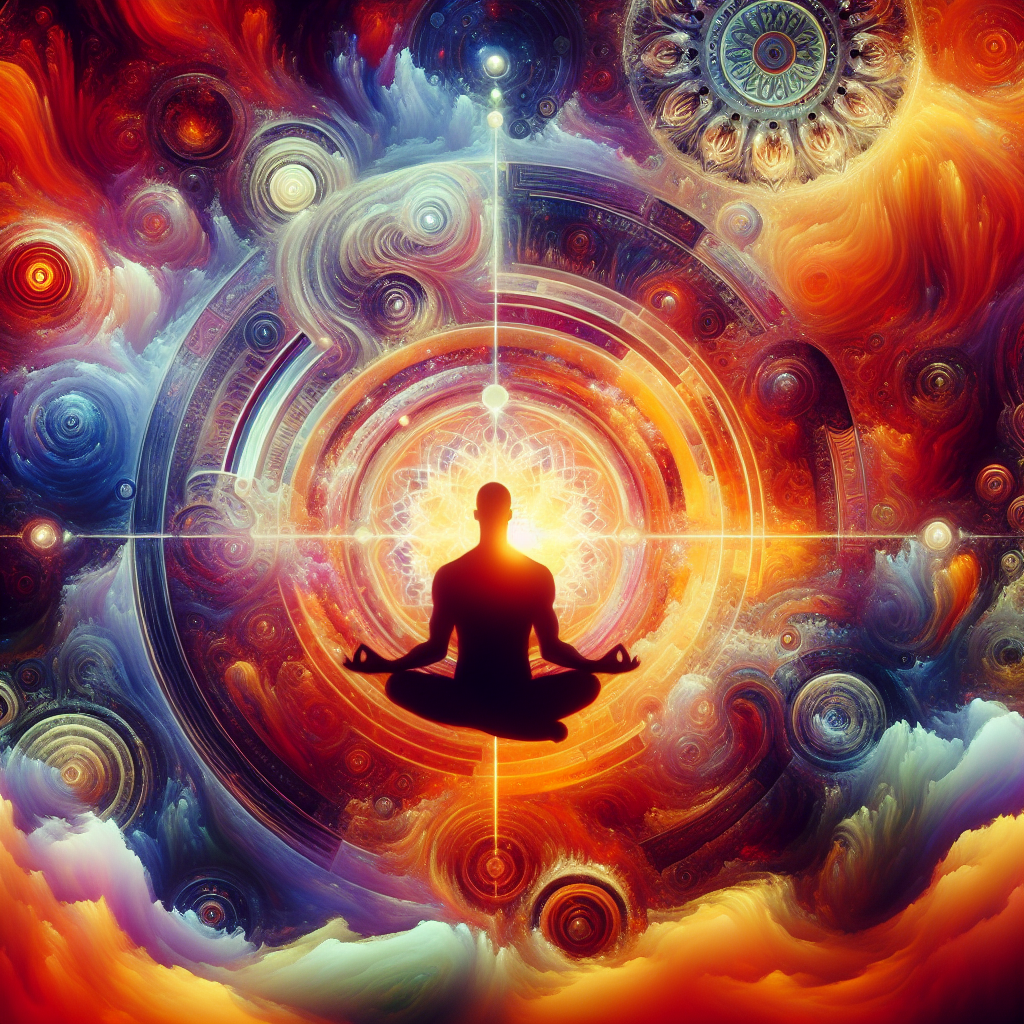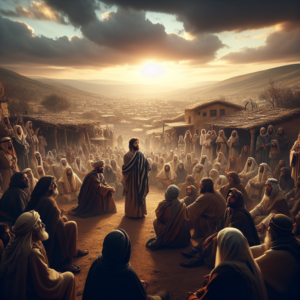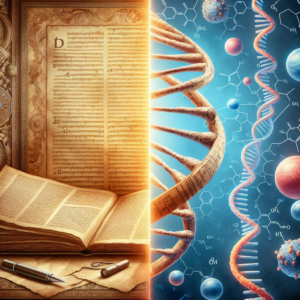Spiritual Devotional about Consciousness
Embracing Divine Consciousness: A Journey to Spiritual Awakening
Greetings, beloved friends!
Have you ever pondered the profound depth of consciousness? In the humdrum of our daily lives, consciousness often gets overshadowed by our routine tasks, our fleeting worries, and our relentless pursuit of success. Yet, consciousness is the very essence of our being; it is the spark of the Divine within us, guiding us, uplifting us, and connecting us to something far greater than ourselves.
The Breath of Life
Let’s take a journey back to the moment of creation. The book of Genesis describes how God formed man from the dust of the ground and breathed into his nostrils the breath of life, and man became a living being (Genesis 2:7). This Divine breath is what brings us to life — it is our consciousness. Imagine that! Each breath we take is a reminder of God’s life-giving spirit dwelling within us.
A Vessel of Divine Awareness
In Psalm 46:10, we are instructed to "Be still, and know that I am God." In our stillness, we can tune into our consciousness and become aware of His presence within us. It’s in these moments of quiet reflection and prayer that we tap into the Divine awareness, feeling His love, His peace, and His guidance.
Consciousness isn’t just a passive state; it’s an active vessel through which we experience the world and, more importantly, through which we experience God. When we are conscious of our thoughts, actions, and emotions, we can align them more closely with His teachings, walking the path of righteousness with humble hearts.
Love as the Foundation
Jesus encapsulated the essence of awakened consciousness when He taught us the greatest commandments: to love God with all our heart, soul, and mind and to love our neighbor as ourselves (Matthew 22:37-39). An awakened consciousness is one rich in love and compassion. When we elevate our consciousness to this level, we can truly live out these commandments, seeing every person as a cherished creation of God and treating them with the love and respect they deserve.
Rejoice in Your Awakening
Friends, let us rejoice in the incredible journey of awakening our consciousness! It’s a path filled with discovery, wonder, and deep spiritual fulfillment. As we become more conscious, we start to recognize the Divine in every moment — in the beauty of a sunrise, in the kindness of a friend, in the opportunities to serve others, and even in the trials that make us stronger.
Let your consciousness be ignited by the scriptures, your prayers, and your daily acts of love and kindness. Let it be a lighthouse that guides not only your own path but also illuminates the way for others. Each step you take toward higher consciousness brings you closer to God’s divine purpose for you.
An Encouraging Word
Remember that consciousness is a gift from our loving Creator. As it says in James 1:17, "Every good and perfect gift is from above, coming down from the Father of the heavenly lights, who does not change like shifting shadows." Embrace this gift with gratitude and let it inspire you to live a life enriched with God’s presence.
Keep reaching higher, dear friends. Keep exploring the depths of your consciousness with joy and curiosity. You are on a magnificent journey to spiritual awakening, shining ever brighter with the light of Christ.
May your path be blessed with peace, love, and divine awareness.
In faith and joy,
[Your Name]
Explore and dig up answers yourself with our BGodInspired Bible Tools! Be careful – each interaction is like a new treasure hunt… you can get lost for hours 🙂
Q&A about Consciousness
Sure! Here’s a Q&A based on the topic of consciousness:
Q: What is consciousness?
A: Consciousness is the state of being aware of and able to think about one’s own existence, thoughts, and surroundings. It encompasses a range of experiences including thoughts, feelings, perceptions, and self-awareness.
Q: How do scientists study consciousness?
A: Scientists study consciousness through various methods, including neuroimaging techniques like fMRI and EEG, behavioral experiments, and computational models. They also examine cases of altered consciousness due to injury, anesthesia, or sleep to understand its underlying mechanisms.
Q: What are some theories about the nature of consciousness?
A: Several theories attempt to explain consciousness, including:
- Integrated Information Theory (IIT): Proposes that consciousness corresponds to the integration of information within a system.
- Global Workspace Theory (GWT): Suggests that consciousness arises when information is broadcast to a wide network of cognitive processes.
- Higher-Order Thought Theory (HOT): Argues that a mental state becomes conscious when a higher-order thought represents it.
Q: Is consciousness unique to humans?
A: While humans are considered to have a higher level of self-awareness and complex consciousness, many scientists believe that other animals also possess varying levels of consciousness. Studies on primates, dolphins, and certain bird species suggest they have self-awareness and problem-solving abilities.
Q: What is the "hard problem" of consciousness?
A: The "hard problem" of consciousness, a term coined by philosopher David Chalmers, refers to the difficulty of explaining why and how subjective experiences (qualia) arise from physical brain processes. This contrasts with "easy problems," like understanding the mechanisms behind perception and behavior.
Q: Can artificial intelligence (AI) become conscious?
A: This is a highly debated topic. Some experts argue that with advanced enough algorithms and neural network designs, AI could potentially achieve a form of consciousness. Others believe that consciousness involves more than just information processing and requires a biological basis.
Q: How does sleep affect consciousness?
A: Sleep profoundly alters consciousness through different stages, including REM (Rapid Eye Movement) and non-REM sleep. During REM sleep, vivid dreams occur, while non-REM sleep involves deeper, more restorative stages. Sleep is essential for cognitive functions and overall mental health.
Q: What is the relationship between consciousness and free will?
A: The relationship between consciousness and free will is complex and debated. Some philosophers and neuroscientists argue that consciousness is necessary for free will, allowing individuals to deliberate and make choices. Others suggest that unconscious processes significantly influence decisions, challenging the notion of free will.
Q: How do psychedelic substances impact consciousness?
A: Psychedelics, such as LSD, psilocybin (magic mushrooms), and DMT, can significantly alter consciousness by influencing the brain’s serotonin receptors. These substances often lead to profound changes in perception, emotion, and cognition, and are being studied for their potential therapeutic benefits in mental health treatment.
Q: What role does attention play in consciousness?
A: Attention is a critical component of consciousness, as it allows individuals to focus on specific stimuli while filtering out irrelevant information. Attentional processes help shape the content of conscious experience and are necessary for tasks requiring focused awareness and cognitive control.
If you have more specific questions about consciousness or need further details on any aspect, feel free to ask!


